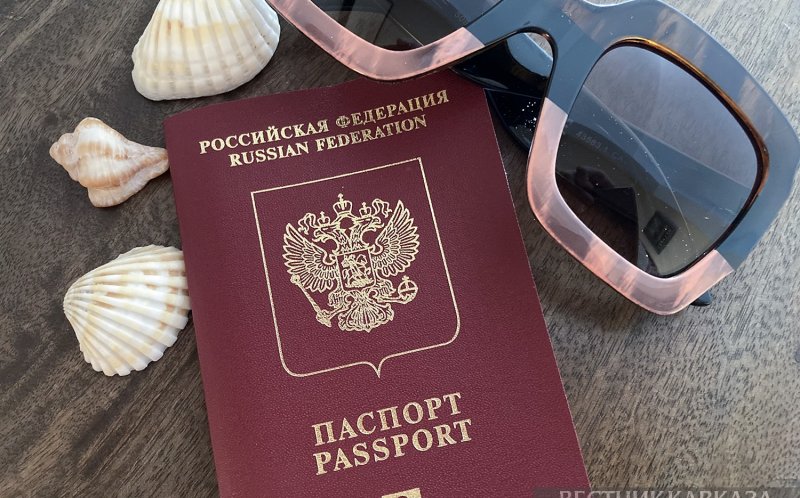Henley Passport Index 2025: Which countries give their citizens the most freedom of movement

In the context of increasing globalization and international mobility, the passport is becoming increasingly important — not just as an identity card, but as a tool for accessing the world. In mid-2025, the analytical company Henley & Partners presented an updated rating of world passports, which assesses the degree of freedom provided by the document when crossing borders.
What is the Henley Passport Index
The Henley Passport Index is an annual analytical rating in which the passports of countries are ranked by the number of destinations available without a visa, or with the possibility of obtaining a visa on arrival. The calculations are based on official data from the International Air Transport Association (IATA), and the rating itself is regularly updated to reflect current international visa arrangements.
Who is in the lead in 2025: ranking of the world's top passports
Singapore's passport came out on top in 2025. Its owners have the right to freely enter 193 countries, which makes it the most "privileged" travel document as of July 2025.
The second place is occupied by citizens of Japan and South Korea, whose passports provide 190 visa-free destinations.
The third place is confidently held by European countries: Germany, France, Italy, Spain, Ireland and Finland. Their citizens have access to 189 countries around the world without having to obtain a visa in advance.
The stability of Europe and the rise of Asia
The positions of European countries at the top of the rating remain stable due to an extensive system of international agreements. However, it is the Asian states that have been demonstrating the highest rates of strengthening their positions in recent years. Singapore, Japan, and South Korea are prime examples of how investments in diplomatic relations and flexible migration policies produce concrete results.
Decline in the USA and Great Britain: an alarming trend
Once considered unattainable in terms of passport power, the United States and the United Kingdom are now inferior to Asian and European competitors.
- The American passport dropped to 10th place, providing 182 visa-free destinations — the worst result in the last two decades.
- The British passport is slightly higher — 186 countries without a visa, which corresponds to the 6th position.
Experts cite the reduction of international visa agreements, increased internal controls and growing distrust of the migration policies of both countries as the reasons for the fall.
The rapid progress of India and the UAE
The Indian passport showed the greatest growth this year, rising to 8 positions. Today, Indian citizens can visit 59 countries without a visa or with a visa issued upon arrival. This is a record growth among all countries in 2025.
The UAE has gained a foothold at the top of the rating, taking the 8th place. The Emirati passport now provides 184 destinations for visa-free travel. This is the result of a long-term diplomatic strategy and a wide network of international agreements.
The weakest passports: who was at the bottom of the rating
Some countries remain isolated due to unstable political conditions or weak foreign policy ties.:
- Afghanistan — 26 countries
- Syria — 27 countries
- Iraq — 30 countries
- Pakistan, Yemen, Bangladesh are also near the end of the list
For citizens of these countries, traveling around the world is still fraught with visa difficulties, strict checks and frequent refusals.
Top 10 countries by passport strength in 2025
Place of States1 without a visa Singapore 1932, Romania, South Korea 1903, Germany, France, Italy, Spain, etc.1894, Austria, Sweden, Portugal, Belgium, etc.1885, New Zealand, Greece, Switzerland 1876, Great Britain 1867, Poland, Czech Republic, Australia, Malta1858, Canada, Estonia 1849, Croatia, Slovakia, Slovenia, Latvia 18310, Sweden, Iceland, Lithuania 182
< br>
Why passport strength is important not only for travel
A high place in the passport index gives not only the opportunity to easily visit other countries. It's also an indicator.:
- the international community's trust in the country
- the effectiveness of foreign policy
- the level of economic development and the legal system
- the quality of consular protection abroad
In addition, citizens of countries with "strong" passports are more likely to receive simplified access to investment and educational programs abroad.
How the index is formed
Points are awarded to each passport depending on the number of countries available without a visa, with a visa on arrival, or via an electronic application. Destinations where a visa is required prior to travel are not included in the rating. The index is reviewed every quarter and reflects real changes in visa regulations.
The passport as a tool of freedom
The Henley Passport Index 2025 showed that is not the size of the state or military power, but rather the level of diplomatic relations and visa openness
Asian states are setting the pace, Europe remains stable, and the former leaders — the United States and Britain — are increasingly facing the consequences of their domestic reforms and foreign policy decisions.
Today, a passport is no longer just a document. It is a measurable indicator of your chances of participating in global life, and at the same time it is a mirror of your country's politics.